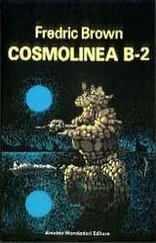Эллен Глазгоу - Barren Ground
Здесь есть возможность читать онлайн «Эллен Глазгоу - Barren Ground» весь текст электронной книги совершенно бесплатно (целиком полную версию без сокращений). В некоторых случаях можно слушать аудио, скачать через торрент в формате fb2 и присутствует краткое содержание. Жанр: Классическая проза, на английском языке. Описание произведения, (предисловие) а так же отзывы посетителей доступны на портале библиотеки ЛибКат.
- Название:Barren Ground
- Автор:
- Жанр:
- Год:неизвестен
- ISBN:нет данных
- Рейтинг книги:3 / 5. Голосов: 1
-
Избранное:Добавить в избранное
- Отзывы:
-
Ваша оценка:
- 60
- 1
- 2
- 3
- 4
- 5
Barren Ground: краткое содержание, описание и аннотация
Предлагаем к чтению аннотацию, описание, краткое содержание или предисловие (зависит от того, что написал сам автор книги «Barren Ground»). Если вы не нашли необходимую информацию о книге — напишите в комментариях, мы постараемся отыскать её.
Barren Ground — читать онлайн бесплатно полную книгу (весь текст) целиком
Ниже представлен текст книги, разбитый по страницам. Система сохранения места последней прочитанной страницы, позволяет с удобством читать онлайн бесплатно книгу «Barren Ground», без необходимости каждый раз заново искать на чём Вы остановились. Поставьте закладку, и сможете в любой момент перейти на страницу, на которой закончили чтение.
Интервал:
Закладка:
After all, the men farmers had suffered more. James Ellgood allowed his outlying fields to run to waste again because he could not find labourers to till them. Old John Appleseed gave up his market garden after he had lost all his vegetables one spring when he was ill and there was nobody to gather them. It was in such a difficulty that Dorinda was aided by a gift she had never depended on in the past, and this was her faculty for "getting on," as she would have called it, with the negroes. Unlike James Ellgood, who was inclined to truculence, she had preserved her mother's friendly relations with the established coloured families at Pedlar's Mill. When the scarcity of labour came, the clan of Moodys provided the field-workers that she required. The Moodys, the Plumtrees, and the Greens, were scattered on thrifty little farms from the settlement of Plumtree to the land beyond Whippernock River; yet, one and all, they were attached by ties of kindred to the descendants of Aunt Mehitable. In a winter of frozen roads and a disastrous epidemic of influenza, the relatives of Aunt Mehitable, who had died long ago, sent pleading messages to Dorinda, and she gave generously of the peach brandy and blackberry cordial she had inherited from her mother. There was scarcely a cabin that the pestilence did not enter, and wherever it passed, Dorinda followed on Snowbird, her big white horse with the flowing mane and the plaited tail which had never been docked. That was a ghastly winter. From November to March the landscape wore the spectral and distraught aspect of one of the engravings after Dore in her mother's Bible. Doctor Stout was still in France, and there was no physician but Jason Greylock at Pedlar's Mill. Dorinda met him sometimes going or returning on horseback from a desperate case; but he appeared either not to recognize her or to have forgotten her name. People said that he was still a good doctor when he had his senses about him. The pity was that he was often too drunk to know what he was doing. He looked an old man, for his skin was drawn and wrinkled, the pouches under his eyes were inflamed with purple, and there were clusters of congested veins in his cheeks.
One afternoon, when the epidemic was at its worst, she rode up to the door of one of the humbler cabins and met him coming away.
"You ought not to go in there," he said shortly, for he was sober at last. "Two children have just died of pneumonia, and the others are ill. They are the worst cases I've seen."
Mounted on her white horse, like some mature Joan of Arc, she glanced down on him. Her face was expressionless but for its usual look of dauntless fortitude. She was thinking, "At last I shall have to speak to him, and it makes no difference to me whether I speak to him or not." It was a quarter ofd century since she had driven home with him that February afternoon. A quarter of a century, and she had not forgotten! Well, when you have only the solitude to distract you, your memory is obliged to be long!
"I am not afraid," she replied in level tones, after she had dismounted and tethered Snowbird to the branch of a tree. "Are you?"
While he could wrap himself in his professional manner, it occurred to her that he was not without dignity. Even though there were only the rags of it left, he was less at her mercy than he would have been in the character of a remembered lover. For an instant it seemed to her that he waited for her question to sink in. Then he answered with the sound of a laugh that had been bitten back.
"I? No. What have I to fear?"
Her smile was as sharp as a blade. "There is always something, isn't there, even if it is only the memory of fear?"
"You think, then, that I was always a coward?" Yes, he was sober enough now, restrained by those shreds of professional responsibility which was the only responsibility he had ever acknowledged.
She laughed. "I stopped thinking of you twenty-five years ago."
"I know." He looked as if he were impressed by her words. "You took the best man, after all. There was more in Nathan than anybody realized."
"Every one says that now."
"Well, it's true even if every one says it. You married a good man."
It was her hour of triumph; and though it was her hour of triumph, she knew that, like everything else in her life, it had come too late. A quarter of a century outlasts expectancy. The old pang was dead now, and with it the old bitterness. It made no difference any longer. Nothing that he could say or do would make any difference. She had outlived both love and hatred. She had outlived every emotion toward him except disgust. That last scene at Five Oaks returned to her, and her lips twisted with aversion. "Yes, I married a hero," she rejoined, and she added to herself, "If only Nathan could hear me!"
"You made your life in spite of me. I'm glad of that."
She laughed again. How little men knew of women! Even Nathan, who had loved her, had never seen her as she was. "Yes, I made my life in spite of you."
"It was too much, I suppose, to expect you to understand how I failed. I never ran after women. That wasn't my weakness. I never wanted to do any of the things I did. I never wanted to throw you over. I never wanted to marry Geneva. I never wanted to ruin either of your lives. I never wanted to stay in this God-forsaken solitude. I never wanted to let drink get a hold on me. I did not want to do a single one of these things; but I did them, every one. And you will never understand how that could be."
She shook her head. "It doesn't matter now. It isn't worth thinking about."
"All the same I wish you could understand that I was not the kind of man to do the things that I did. I was a different sort of fellow entirely. But what I was never seemed strong enough to withstand the pull of what I was not. Of course, you'll never see that. You'll just go on thinking I was born rotten inside. Perhaps you're right. I don't know. I can't work it out."
She looked through him and beyond him to the brown solitude of the winter fields. The sunken roads were swimming in melted snow; the bushes were like soaked rags; the trees were dripping with a fluid moisture which was heavier than rain. From the sodden ground a vapour steamed up and floated like a miasma on the motionless air.
"Men like you ought to have been sent to the war," she said. "They wouldn't take me. I was too old, and besides I've got the drink habit."
"And you blame somebody else for that, I suppose?"
"No, I don't blame anybody. I don't blame anybody for anything. Least of all myself. It was the way things turned out. Strange as it may seem to you, I always did the best that I could. If Father had died sooner, it might have been different. But everything happened too late. The broomsedge grew over me before I could get away."
Exultation flared up and then died down to ashes. "You ruined Five Oaks, and I saved it," she said.
"Yes, you have done well with the farm." Twenty-five years of toil and self-denial, and in the end only: "You have done well with the farm!"
"That shows what you can do even with poor land when you put your heart into it," he added.
"Not the heart, but the head," she retorted sharply, as she went past him into the cabin.
Chapter 6
When the spring came and the epidemic was over, she had won the loyal friendship of the poorer tenant farmers and the negro landowners; but her energy and her resilience were less than they had ever been in her life.
Machinery could not work alone, and even tractor-ploughs were obliged to be guided. She had installed an electric plant, and whenever it was possible, she had replaced hand labour by electricity. In the beginning she had dreaded the cost, but it was not long before she realized that the mysterious agency had been her safest investment. The separator in the dairy was run by electricity. With the touch of a button the skimmed milk was carried by pipes to the calf-yard or the hog-pen. Pumping, washing, churning, cooling the air in summer and warming it in winter, all these back-breaking tasks were entrusted to the invisible power which possessed the energy of human labour without the nerves that too often impeded it, and made it so uncertain a force.
Читать дальшеИнтервал:
Закладка:
Похожие книги на «Barren Ground»
Представляем Вашему вниманию похожие книги на «Barren Ground» списком для выбора. Мы отобрали схожую по названию и смыслу литературу в надежде предоставить читателям больше вариантов отыскать новые, интересные, ещё непрочитанные произведения.
Обсуждение, отзывы о книге «Barren Ground» и просто собственные мнения читателей. Оставьте ваши комментарии, напишите, что Вы думаете о произведении, его смысле или главных героях. Укажите что конкретно понравилось, а что нет, и почему Вы так считаете.










![Эллен Дедженерес - Кроме шуток [Как полюбить себя, продать дуршлаг дорого, прокачать мозг с помощью телешоу и другие истории от Эллен Дедженерес] [litres]](/books/384873/ellen-dedzheneres-krome-shutok-kak-polyubit-sebya-p-thumb.webp)

